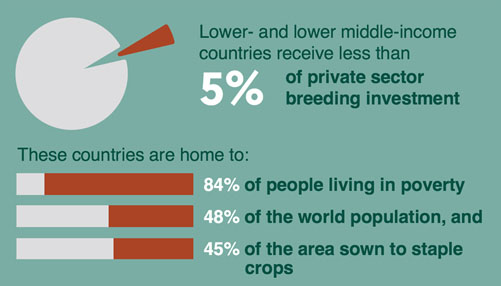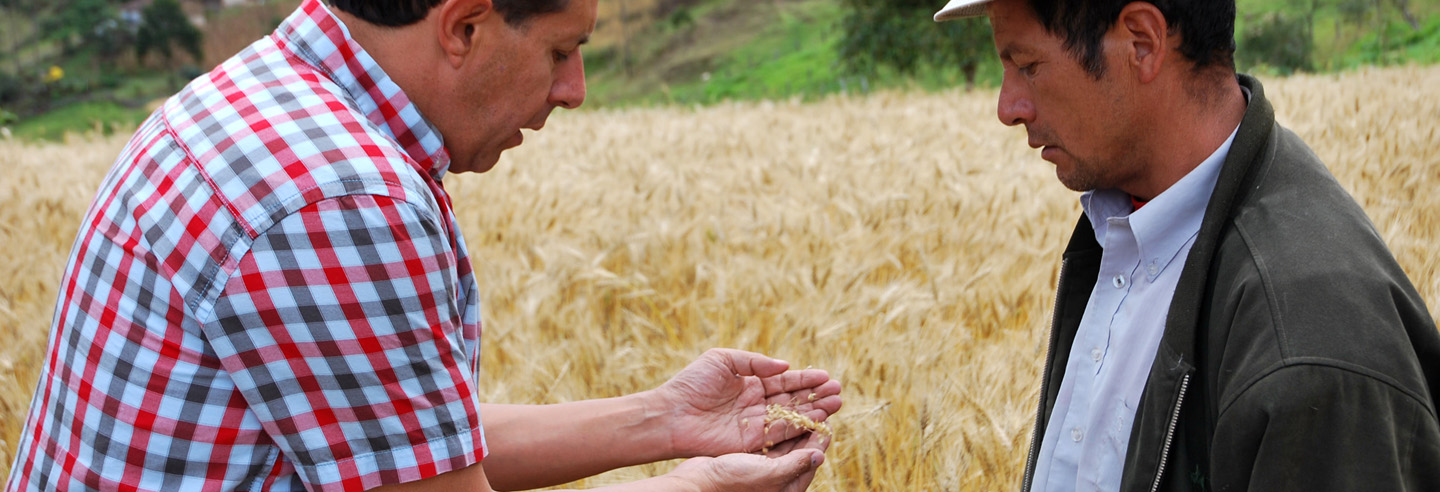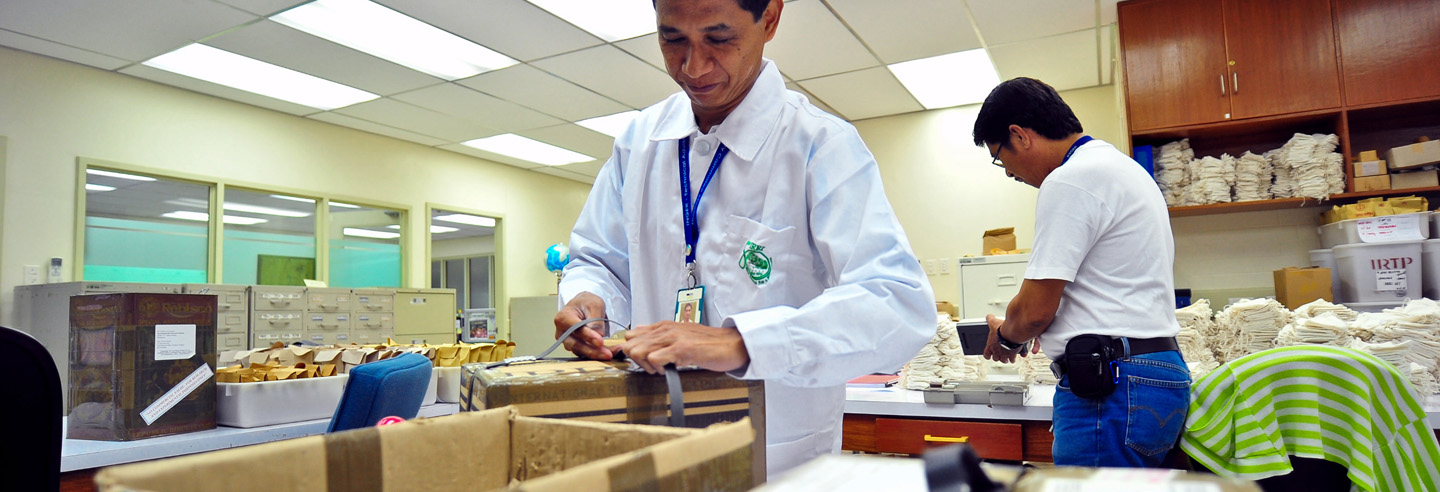Many developing world farmers still lack access to modern varieties and breeds adapted to their needs.
Less than five percent of breeding investment goes to low- and lower middle-income countries, which are home to nearly half of the world's staple cropland, half of the global population and 84 percent of all poor. It is where climate change adaption is the most urgently needed and millions of families rely on agriculture.

But seed breeding systems need to be more effective in producing the rates of genetic gain and variety turnover needed to meet these challenges. CGIAR Excellence in Breeding began to change this. It empowered breeding programs targeting the developing world to develop more resilient, productive and nutritious crop varieties and livestock breeds faster, and with greater relevance for local farming communities.
The EiB team developed a vision in coordination with CGIAR and NARS researchers and leaders from CGIAR and national agricultural research systems (NARS), funders and private sector partners. To increase the impact of CGIAR and NARS breeding, EiB's vision will develop world class breeding programs with results:
- CGIAR and NARS breeding networks generate rates of genetic gain ≥1.5% p.a.
- Average area weighted age of varieties in farmers’ fields is <10 years
In order to deliver better and faster results to farmers' fields, funders have made six requests of CGIAR:
-
Aligning breeding pipelines with market segments, development of pipeline investment cases, product profiles, etc.
-
Increased rate of genetic gain.
-
Incentivization of breeding teams and individuals aligned with genetic gain and variety turn-over
-
Building NARS breeding networks and capacity.
-
Effective delivery mechanism of varieties from breeding program to farmers.
-
Commitment to shared services.
EiB was (2017-21) of CGIAR's four cross-cutting Global Integrating Programs (GIP) framed to work closely with the eight Agri-Food Systems (AFS) CGIAR Research Programs within relevant agro-ecological systems, and will consider the influence of rapid urbanization and other drivers of change to ensure that research results deliver solutions at the national level that can be scaled up and out to other countries and regions.
As a Platform of CGIAR, a global agricultural research partnership for a world free of poverty, hunger and environmental degradation, the Platform has unrivaled reach to achieve this mission. The work of this Platform is at the core of achieving the Sustainable Development Goals.












